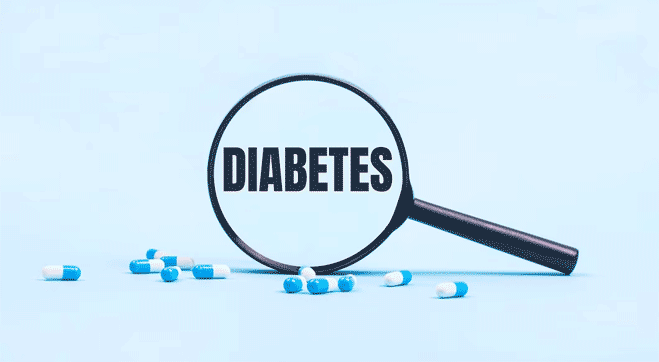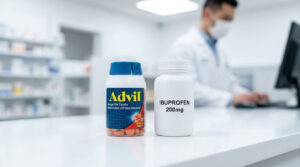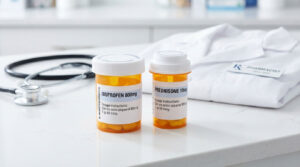With the global incidence of diabetes at an all-time high, healthcare providers are now turning to Hb1AC test to help check for abnormal glycemic control. HbA1C tests can capture the average blood glucose levels for the past three months allowing for better diagnosis of medical conditions such as diabetes, heart diseases, kidney diseases or nerve damage.
How Does A HbA1C Blood Test Work?
Before you book an HbA1C test, you must understand the working principle behind the same. Haemoglobin is an oxygen-carrying protein that contains iron found in the Red blood cells of the blood. When this molecule forms a bond with oxygen, it is known as oxyhemoglobin which is bright red giving your blood an overall red hue.
Along with oxygen, haemoglobin can form bonds with the glucose molecules present in our blood-forming glycated or glycosylated haemoglobin. In an HbA1C blood test, your levels of glycated haemoglobin are tested since the amount of glycated or glucose-combined haemoglobin shares a direct relationship with the total amount of glucose present in your body. If you have elevated levels of HbA1C, then your system has elevated levels of blood glucose, and vice versa.
Unlike conventional blood glucose tests that check for the body’s glucose concentration at a given point, the HbA1C test reflects the average blood sugar levels of the body. It accounts for the past 8-12 weeks, corresponding to the lifetime of your body’s red blood cells. Since this test is a long-term indicator of blood glucose levels, it is more reliable to make inferences about your body’s glycemic control based on its results.
Thus, this test is most commonly prescribed by medical practitioners in the diagnosis and prognosis of diseases such as diabetes or prediabetes in adults. Further, it is also beneficial in monitoring patient progress and blood sugar levels in those diagnosed with diabetes. It helps medical practitioners know if the current treatment is effective or needs to be altered, thereby preventing life-threatening heart attacks or strokes in susceptible patients.
Who Needs A HbA1C Test?
Medical practitioners recommended that all adults over the age of 45 should get regular blood sugar screenings to check for any incidence of diabetes and prediabetes. When the HbA1C levels fall within the normal range, the test is conducted every 2-3 years. For those with prediabetes, the testing is done every 1-2 years to check for diabetes. For patients with diabetes, consulting doctors or attending healthcare providers will insist on tests as frequently as once every 3-4 months.
Further, if you’re under the age of 45 and exhibit certain risk factors such as obesity or being overweight, elevated blood pressure levels, genetic disposition to heart diseases or having a sedentary lifestyle, it is advisable to get an HbA1C test to screen for diabetes. Doing this will allow you to catch the disease in its initial stages, thereby helping you take steps to keep it in control. HbA1C blood test prices are reasonably priced, making them one of the easiest and cheapest tests to check for any diseases.
How To Prepare For A HbA1C Test?
One of the best parts of an HbA1C test is that you don’t need to be fasting before. This means that you don’t have to prepare for the test and can drop in your blood sample at any point in the day according to your convenience.
What Happens During an HbA1C Test?
The HbA1C test is a simple blood tests during which a nurse or a healthcare professional will draw a sample of your blood. This sample is then stored and sent to a lab for processing and testing. It is one of the safest tests with little to no risks.
What Do My HbA1C Results Indicate?
You will see that your HbA1C levels are presented in the form of percentages. The generally accepted ranges for HbA1C results are as follows.
Normal/Within Range: Less than 5.7%
It indicates that your HbA1C levels are within the generally accepted levels for a regular human body. It means that you show no clear indication of diabetes and show no or minimal risk of developing diabetes.
Prediabetes: Between 5.7% and 6.4%
It indicates that your HbA1C levels are mildly elevated, resulting in prediabetes. In this medical condition, your blood sugar levels are higher than accepted glucose levels but aren’t high enough to be classified as type II diabetes.
Diabetes: Above 6.5%
It indicates that your HbA1C levels are well above the normal range, indicating the occurrence of diabetes. In this medical condition, your body’s insulin production is affected, resulting in abnormally high blood glucose levels.
When Do I Consult My Healthcare Provider?
If your HbA1C levels indicate diabetes or prediabetes, you should visit your healthcare provider at the earliest. An early diagnosis and effective treatment regimens can help you control your blood sugar levels and prevent any long-standing effects on your body. In most cases, your healthcare professional will ask you to shed some weight, improve your lifestyle by focusing on a balanced diet and more physical activity, limit alcohol and glucose intake, and quit smoking to help you lower your blood sugar and improve your body’s insulin sensitivity.
Before you start looking up HbA1C test prices near you, it is important to know that this test can help diagnose Type 2 diabetes or adult-onset diabetes only. It cannot diagnose gestational diabetes, a medical condition that results in elevated blood sugar levels and insulin resistance in pregnant women. Further, the HbA1C test is not a primary Diagnostic Test for Type 1 diabetes or juvenile diabetes because it fails to record daily variations in blood sugar levels and different complications that arise with this medical condition.
Also, if you’re anaemic or suffer from any blood or clotting disorder, you must let your healthcare provider know beforehand. In such cases, your HbA1C test results may be less accurate and cannot be used to diagnose diabetes.
Book Your HbA1C Test Now!
If you spot any risk factors or have a family history of heart disease or diabetes, it is advisable to get an HbA1C test. The faster you catch these diseases, the faster it will be for you to get ahead of them. It’s high time to take your health seriously and start caring for yourself to live a long and happy life.








